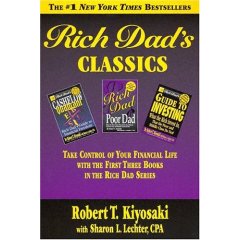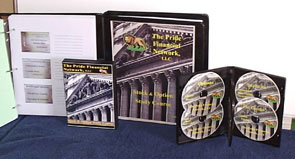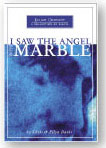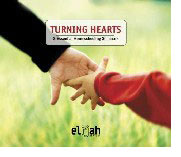How to Teach the Emancipation Proclamation
If you missed past issues of the e-journal, you can read them HERE>>
by Lin Ennis
If you’ve covered the Civil War with your children, you’ve taught them that slavery in the United States of America ended around 145 years ago. The struggle was financial as much as moral, as such struggles always are. Being production units, slaves were worth money. In other words, to free slaves was, for the wealthy, to forfeit nearly half of their property.
The first rule of investigative journalism is simple enough for a 6th grader to track: “follow the money.” Money is like an arrow pointing to the heart of the matter. Look who’s acquiring it, and who’s handing it over. That contrast describes the core drama. Everything else is just the Greek chorus!
And that’s what happened in the 1860s. While some people were concerned about human rights, others were just protecting their assets. In 1862, Thaddeus Stevens, a Republican leader in the House of Representatives, argued that freeing slaves would ruin the rebel economy.
Following the money doesn’t necessarily indicate guilt or righteousness. It just leads you to the heart of the matter. There you observe the principles at work and make informed decisions about your own right-doing.
Teaching by Example
We’re still fighting for emancipation. Only the lords have changed and most everyone has bowed to servitude. While there are more opportunities for freedom, there are exponentially more things to be slaves to. The first way to teach freedom is by example, by being slave to nothing—not video games, television, negatively-charged music, owning what everyone else owns….
Let’s take the largest stranglehold on most adults: debt. It’s not only culturally accepted, it’s socially expected! Young people watch us “lose heart” at work, or “sell our souls” to a job we hate to support a lifestyle we (and they) love, or for just a nice place to live.
A wise man warned centuries ago that “The borrower is the slave of the lender.” Interestingly, the proverbist did not exclude mortgages. Even the word mortgage indicates a pledge to the death, just like the children who were born to slave parents and were thus pledged for their entire lives.
In Japan, mortgages can go 100 years, so one family makes a decision that affects three or four generations to come. It’s the same in the U.S., because children learn to do what they see their parents do.
Time to Rebel
Financial freedom may be the dearest of all, after freedom of religion and conscience. It must start with freedom from bad debts—not part of income generation (good debt could be businesses and investment properties).
Remember what Stevens said? That freeing slaves would ruin the rebel economy? Then it’s time for a rebellion! It’s time to ruin any economy that is fueled by debt. In fact, help your children tackle the biggest scam of them all—paying 2-3 times list price for a home for you and your family.
How Much Good Can You Do?
Go online to http://bankrate.com/brm/mortgage-calculator.asp and let your child enter your, or a hypothetical, loan amount and interest rate. Click on “Show/Recalculate Amortization Table.” Scroll down to the bottom of the table. In the right-most column, one square up from the zero balance, in the row titled “Total Interest ($)” is the amount of interest for that loan.
Use a calculator, spreadsheet or a piece of paper to add the amount of the loan (principal) to the interest shown. Your sum is the total amount to be paid.
Again, using a calculator, spreadsheet or a piece of paper, divide the total (the sum from the above paragraph) by the original loan amount. For example, $528,000 / $200,000 = 2.6. (A $200,000 loan at 8% for 30 years will cost $528,000, or 2.6 times the face value of the loan. This is usury, an effective mortgage interest of 164%.)
Bankers, brokers, and even accountants have not painted the picture that darkly. In fact, most have advised it’s a good thing to have a home mortgage because it’s tax deductible. Ask your children: Would you (a) rather pay less in taxes or (b) rather have more money in hand? No. It isn’t a trick question. In most cases, paying more mortgage interest and less in taxes, results in less money on hand than if you paid a bit more in taxes but paid no mortgage interest!
This may be too difficult to work out for younger children. Older U.S. children can search irs.gov for examples. For discussion: Joe deducted $22,000 mortgage interest off his $100,000 income before calculating taxes on his adjusted gross income. It saved Joe $6000 in income tax.
Alberto did not have that mortgage deduction, so he had to pay $6000 more in taxes. How much money did Alberto have? ($22K interest he did not pay, minus the $6K in additional taxes he did pay, equals $16K more in his pocket!).
When you teach “follow the money” in modern financial slavery, be sure to include a segment on the good that can be done by debt emancipation. For example, rather than avoiding $6000 in taxation, it might be better to pay up and have an extra $16,000 for a trip to Europe, a Habitat for Humanity house or a paid-for-with-cash car.
How to Become Emancipated
Help your students find ways to pay down a mortgage quickly and avoid tens of thousands of dollars in interest. See who can come up with the most savings. (Obviously, this is a good time to “warn them” about mortgage brokerage come-on offers that don’t pan out when you talk to the broker.) Search online for “mortgage reduction” or “early payoff.”
Use a spreadsheet to show how adding an additional $5 of birthday card money to principal, early in a mortgage, can return $50 in savings (avoided interest).
Note carefully: when you add an additional principal payment to your loan, you must do so in writing (or with an online form), and you must be sure your lender will credit it immediately. Many lenders have restrictions, though if you take out another home loan in the future, you’ll be smart enough to avoid restrictive payback policies.
This will help them understand why saying No to a frivolous purchase here or there can help everyone in their family rest more easily.
In addition, and this section would be only for grades six and above except by example and conversation (they hear everything; you know that): There is a technique for early payoff you may never have heard of. It is the only method that does not require paying extra on your mortgage and still reduces it.
This pay-your-house-off-quickly technique uses the paid-for portion of your home to help you pay off the unpaid-for portion. It’s done with a simple lending instrument you can probably get from the same entity that holds your home mortgage. It’s called a home equity line of credit (HELOC). It’s a revolving line (not a loan), similar to a Visa or MasterCard, in that when you put a charge on it, you owe more; and when you pay back the charge, you owe less. Hence the “revolutions.”
Dictionary exercise for all ages: Look up and discuss the word “equity.” It has lots of meanings. How similar are the meanings, when some deal with money and others with justice? What’s different about the meanings?
A HELOC can be used to pay anything except your house payment (that’s illegal). Therefore, the money from your HELOC which you wish to apply to your home’s principal must get to your mortgagor some other way. How? (Cash in an envelope, run through another account, like your regular checking, etc.)
Note carefully: When anyone adds additional principal payoff to a loan, it must be in writing. Also verify the lender will credit it immediately.
A little complicated? Only till you get started. You may want someone to walk you through it or find a good step-by-step guide, because most of us made at least one mistake in the beginning, but it’s worth it!
After you’ve copied or imported an amortization schedule to your own spreadsheet, see what happens if three or six months from now your student adds $5000 extra to ‘principal only’ on the loan. (Where will you, on a tight budget, get the $5000? From your HELOC!)
As you run the spreadsheet down towards thirty years (360 rows in a spreadsheet with no header information—12 X 30), note where the numbers become negative (minuses). Scroll up from the bottom to the last negative number below a positive. Instruct your children to type the last positive number into the payment cell in the row of the first negative number, effectively zeroing out any remaining balance. Select and delete all rows below that.
To check out what would happen if they did this once, twice or three times a year, go online to http://www.letriches.com/calculator.php
When they do this, they are working interest the way the banks work it—to their advantage. It’s legal, ethical and moral. And best of all, there’s a way to payoff the HELOC without making payments! How freeing!
Financial Freedom
Remember what Stevens said in 1862? That freeing slaves would ruin the rebel economy? In many ways it did.
But in our case, freeing ourselves from the slavery of mortgage debt will actually enhance the economy. Debt limits options for education, travel, advancement and enrichment.
Removing debt opens up opportunities for investment, for business building, for generating more income-to say nothing of the opportunity freedom from debt gives us to live a more stress-free life.
Plus it gives us the opportunity to model financial freedom to our children
Lin Ennis recently co-authored, with John R. Barker, a do-it-yourself manual called “Let Your Mortgage Make You Rich!" She writes from her home in Sedona AZ.
Special Teleconference on Paying Down Your Mortgage
 I've persuaded Lin and John to do a teleconference for on ways to pay down your mortgage quickly and without causing a financial pinch. Using their method, you can pay down your mortgage incredibly quickly without making an extra payment or refinancing. To sign up for this teleconference, GO HERE>> I've persuaded Lin and John to do a teleconference for on ways to pay down your mortgage quickly and without causing a financial pinch. Using their method, you can pay down your mortgage incredibly quickly without making an extra payment or refinancing. To sign up for this teleconference, GO HERE>>
Top Resources for Understanding Finances and Cash Flow
 Cashflow Quadrant by Robert Kiyosaki. Kiyosaki has dozens of books in print. All of them are "must reads," but to me this is the most life changing of them all. It clearly explains the way money flows in the hands of the poor, the middle class, and the rich, and why you must change your cash flow pattern if you want to become financially well-off. But the most interesting part of the book is the explanation of the four different types of people in business—the employee, the self-employed, the business owner, and the investor—and the thinking and lifestyle that lies behind each. This book will change forever how you look at a job, and also how you look at owning your own business. Read it! Cashflow Quadrant by Robert Kiyosaki. Kiyosaki has dozens of books in print. All of them are "must reads," but to me this is the most life changing of them all. It clearly explains the way money flows in the hands of the poor, the middle class, and the rich, and why you must change your cash flow pattern if you want to become financially well-off. But the most interesting part of the book is the explanation of the four different types of people in business—the employee, the self-employed, the business owner, and the investor—and the thinking and lifestyle that lies behind each. This book will change forever how you look at a job, and also how you look at owning your own business. Read it!
 Rich Dad, Poor Dad. This is the foundational book to all other Robert Kiyosaki books. It teaches you to act like, be like and think like a Rich person instead of a poor person.This book will tell you some things that you don't want to hear like a house is not an asset. That financial literacy is different from educational literacy. That your income is not your wealth. Investors are different from savers and so on. Easy to understand why some people fail to understand the concepts taught by Robert Kiyosaki. The real question is: How are doing financially? I mean really?
You can live in a big house, have 3 cars, a nice job and a big income, but if you are living on 125% of your income, you are still a poor person. Rich Dad, Poor Dad. This is the foundational book to all other Robert Kiyosaki books. It teaches you to act like, be like and think like a Rich person instead of a poor person.This book will tell you some things that you don't want to hear like a house is not an asset. That financial literacy is different from educational literacy. That your income is not your wealth. Investors are different from savers and so on. Easy to understand why some people fail to understand the concepts taught by Robert Kiyosaki. The real question is: How are doing financially? I mean really?
You can live in a big house, have 3 cars, a nice job and a big income, but if you are living on 125% of your income, you are still a poor person.
Rich Dad's Who Took My Money? is a "Follow the Money" guide to how to use money wisely through investments.

Rich Dad's Classics. This is a CD set that covers three best-selling Rich Dad books: Rich Dad, Poor Dad, Cashflow Quadrant, and Rich Dad's Guide to Investing. If you're like me, I don't have enough time to do all the reading I want to do, so I listen to audio CDs when I drive. This way I can listen to the information over and over until I "get it." This set is worth it's weight in gold.
If You Want to Be Rich and Happy, Don't Go to School The title kind of says it all. When I first started reading books such as Kiyosaki's and Charles Givens I was in my 30s and astounded that I was a highly educated person yet no one had ever taught me about cash flow or any of the "real world" concepts needed to be financially literate. I also realized that I had been taught to have a "worker" mentality instead of a business owner or investor mentality. This book explains it like no other.
Here are three books that explain the Rich Dad, Poor Dad message to young people and to parents who want to give their children the kind of financial education they'll never get in school:
 Rich Dad's Escape from the Rat Race: How to Become a Rich Kid by Following Rich Dad's Advice. For Grades 3 Up–The authors of the bestselling Rich Dad, Poor Dad teach financial intelligence to children through colorful cartoon images and cute animal characters. However, the lessons are more suitable for high school students. The authors tell readers to minimize their liabilities such as credit-card debt while building assets, such as starting their own businesses. Rich Dad's Escape from the Rat Race: How to Become a Rich Kid by Following Rich Dad's Advice. For Grades 3 Up–The authors of the bestselling Rich Dad, Poor Dad teach financial intelligence to children through colorful cartoon images and cute animal characters. However, the lessons are more suitable for high school students. The authors tell readers to minimize their liabilities such as credit-card debt while building assets, such as starting their own businesses.
 Rich Dad, Poor Dad for Teens: The Secrets About Money You Don't Learn in School teaches the same message, but is for teens. Rich Dad, Poor Dad for Teens: The Secrets About Money You Don't Learn in School teaches the same message, but is for teens.
Rich Dad's Rich Kid, Smart Kid: Giving Your Children a Financial Headstart tells you how you can give your children the kind of financial education they won't get anywhere else.
More coming in the next issue . Stay tuned....
View past ejournals HERE>>
P.S. Here are the webpages I've finished. Each page listed will take you to more pages on that topic.
Webpages about choosing teaching materials
Webpages about the importance of reading great books and booklists for children of all ages
Any article appearing on this website may be copied or forwarded electronically provided that proper credit is given and that the article is not substantively modified.
No article may appear in whole or in part in a publication sold for profit or as part of any commercial endeavor without the written consent of Home School Marketplace.
© Copyright 2006. Home School Marketplace, 1053 Eldridge Loop, Crossville, TN 38571.
Be sure to sign up for our ejournal!
Sign up below.
|
|
Remember
(Since the anniversary of 9/11 was this week, I wanted to share something about the important things in life. Then this message came in my inbox. Supposedly it was written by George Carlin, a famous comedian in the 70s and 80s after his wife recently died. Whoever wrote it, I think it's worth sharing.)
The paradox of our time in history is that we have taller buildings but shorter tempers, wider Freeways, but narrower viewpoints. We spend more, but have less, we buy more, but enjoy less. We have bigger houses and smaller families, more conveniences, but less time. We have more degrees but less sense, more knowledge, but less judgment, more experts, yet more problems, more medicine, but less wellness.
We drink too much, smoke too much, spend too recklessly, laugh too little, drive too fast, get too angry, stay up too late, get up too tired, read too little, watch TV too much, and pray too seldom. We have multiplied our possessions, but reduced our values.
We talk too much, love too seldom, and hate too often.
We've learned how to make a living, but not a life. We've added years to life not life to years. We've been all the way to the moon and back, but have trouble crossing the street to meet a new neighbor. We conquered outer space but not inner space. We've done larger things, but not better things. We've cleaned up the air, but polluted the soul. We've conquered the atom, but not our prejudice. We write more, but learn less. We plan more, but accomplish less. We've learned to rush, but not to wait. We build more computers to hold more information, to produce more copies than ever, but we communicate less and less.
These are the times of fast foods and slow digestion, big men and small character, steep profits and shallow relationships. These are the days of two incomes but more divorce, fancier houses, but broken homes. These are days of quick trips, disposable diapers, throwaway morality, one night stands, overweight bodies, and pills that do everything from cheer, to quiet, to kill. It is a time when there is much in the showroom window and nothing in the stockroom.
Remember; spend some time with your loved ones, because they are not going to be around forever.
Remember, say a kind word to someone who looks up to you in awe, because that little person soon will grow up and leave your side.
Remember, to give a warm hug to the one next to you, because that is the only treasure you can give with your heart and it doesn't cost a cent.
Remember, to say, "I love you" to your partner and your loved ones, but most of all mean it. A kiss and an embrace will mend hurt when it comes from deep inside of you.
Remember to hold hands and cherish the moment for someday that person will not be there again. Give time to love, give time to speak! And give time to share the precious thoughts in your mind.
AND ALWAYS REMEMBER: Life is not measured by the number of breaths we take, but by the moments that take our breath away.

Special Teleconference on Paying Down Your Mortgage
I've persuaded Lin and John (see the article in the left-hand column) to do a teleconference on how to pay down your mortgage quickly and without causing a financial pinch. Using their method, you can pay down your mortgage incredibly quickly without making an extra payment or refinancing. To sign up for this teleconference, GO HERE>>

If you haven't had a chance yet to tell me what home schooling means to you, please GO HERE NOW. It will just take you a few minutes and your input is invaluable to me.
Thanks!
WHAT HOME SCHOOLING
MEANS TO ME SURVEY

Home Business Resources

The Pride Financial Network Stock and Options Home Study Program
I keep encouraging you to at least check this program out because there have been so many home schooling families who have used it to create extra income at home. Also, my son James mentored under Chris Verhaegh, author of the program and has used the techniques taught in this program to support himself for the past two years. Find out more about it HERE>>
If you've ever thought about learning to invest in the stock market, do it now. Find out more about the Pride Financial Network HERE>>

The Big Seminar. I've been going to the Big Seminar for five years now and, as far as I'm concerned, it is one of only three seminars you need to go to if you are interested in developing any sort of income on the internet. The "how to" ideas I've learned from the internet marketing experts at the Big Seminar have supported my family for almost three years now. And you can learn the same things I have.
What is the Big Seminar? It's a twice a year gathering of the top internet marketers in the world where they share information about what works on the internet. You'll learn how to create extra income at home by creating your own products you can market over the internet, by setting up sites that create income for you through Google Adsense, by selling on e-Bay, by writing e-books, and much, much more. The next Big Seminar is October 27, 2,and 29 in Atlanta. This event has consistently sold out in the past, so sign up early!
I'm telling you--if you or someone in your family has a bent toward the internet, they need to go to the Big Seminar. This seminar has changed the lives of thousands of people
from all over the world, including mine--- now is your chance. Get more information HERE>>

Let Your Mortgage Make You Rich. A friend in my internet marketing group discovered this technique for paying down your mortgage incredibly quickly without making an extra payment or refinancing. Using her method, people are cutting a 30 year mortgage down to eight or nine years. It’s true; without extra payments or refinancing – you could save tens of thousands of dollars - even hundreds of thousands - on what you pay for your home. And the best part is that the book comes with a money-back guarantee. If you don't save more on your mortgage than the book costs in the first 18 months of using the techniques, you'll get your money back. Get more information HERE>>
Building the Business of Your Dreams (8 CD Set) I've had requests for just the business portion of the From Home School to Home Business Seminar, so have developed a set of the business CDs from that set. It contains 8 CDs and includes sessions on The Entrepreneurial Mind, Multiple Streams of Home Income, Discovering Your Ideal Life and Ideal Business (2 CDs) , Developing a Business Plan (2 CDs), and The Importance of Business Relationships. Plus, there is a very important and insightful interview on Redeeming the Marketplace. Find out about this life-changing set of CDs HERE>>

Home School Resources
SALE PRODUCTS!
Limited Quantities
30% Off! We only have a few of each of these left.
 We have the following WIN books available: The Reluctant Writer, Comprehensive Story Writing, Writing Man 1 & 2, and WIN Twin. We have the following WIN books available: The Reluctant Writer, Comprehensive Story Writing, Writing Man 1 & 2, and WIN Twin.
For more information and to place an order, GO HERE>>
I Saw the Angel in the Marble

With over 4,000 copies sold in just a few months, I Saw the Angel in the Marble is becoming a home schooling best seller!
This book represents the best of 15 years of Elijah Company articles. Find our more HERE>>
Turning Hearts: Davis Seminar Set (8 CDs)
 The Best of Chris and Ellyn Davis, this set contains seminars given by Chris and Ellyn Davis of The Elijah Company at home schooling conventions. The set contains all of the favorites that home schoolers ask for over and over. People have told us this set of CDs changed their lives. Find out more about them HERE>> The Best of Chris and Ellyn Davis, this set contains seminars given by Chris and Ellyn Davis of The Elijah Company at home schooling conventions. The set contains all of the favorites that home schoolers ask for over and over. People have told us this set of CDs changed their lives. Find out more about them HERE>>
Angel in the Marble/Davis Seminars Set
Order a combination of I Saw the Angel in the Marble and the Davis Seminars CDs HERE>>
From Home School to Home Business
(14 CD Set)
 If you missed one of our From Home School to Home Business Conferences, you missed a great time.People who have attended tell us that it changed their lives—not only in the area of home schooling, but also in the area of creating their own sources of home income.This set is huge and filled with useful and encouraging information about how to be successful at home schooling and at home business! Find out more about this life-changing set of CDs HERE>> If you missed one of our From Home School to Home Business Conferences, you missed a great time.People who have attended tell us that it changed their lives—not only in the area of home schooling, but also in the area of creating their own sources of home income.This set is huge and filled with useful and encouraging information about how to be successful at home schooling and at home business! Find out more about this life-changing set of CDs HERE>>
Building the Home School of Your Dreams
Building the Home School of Your Dreams is a 6 CD set taken from the From Home School To Home Business Seminar and features sessions by Chris Davis and Mary Hood. Find out more HERE>>
|
|


 Cashflow Quadrant
Cashflow Quadrant
 Rich Dad's Escape from the Rat Race: How to Become a Rich Kid by Following Rich Dad's Advice
Rich Dad's Escape from the Rat Race: How to Become a Rich Kid by Following Rich Dad's Advice Rich Dad, Poor Dad for Teens: The Secrets About Money You Don't Learn in School
Rich Dad, Poor Dad for Teens: The Secrets About Money You Don't Learn in School 




